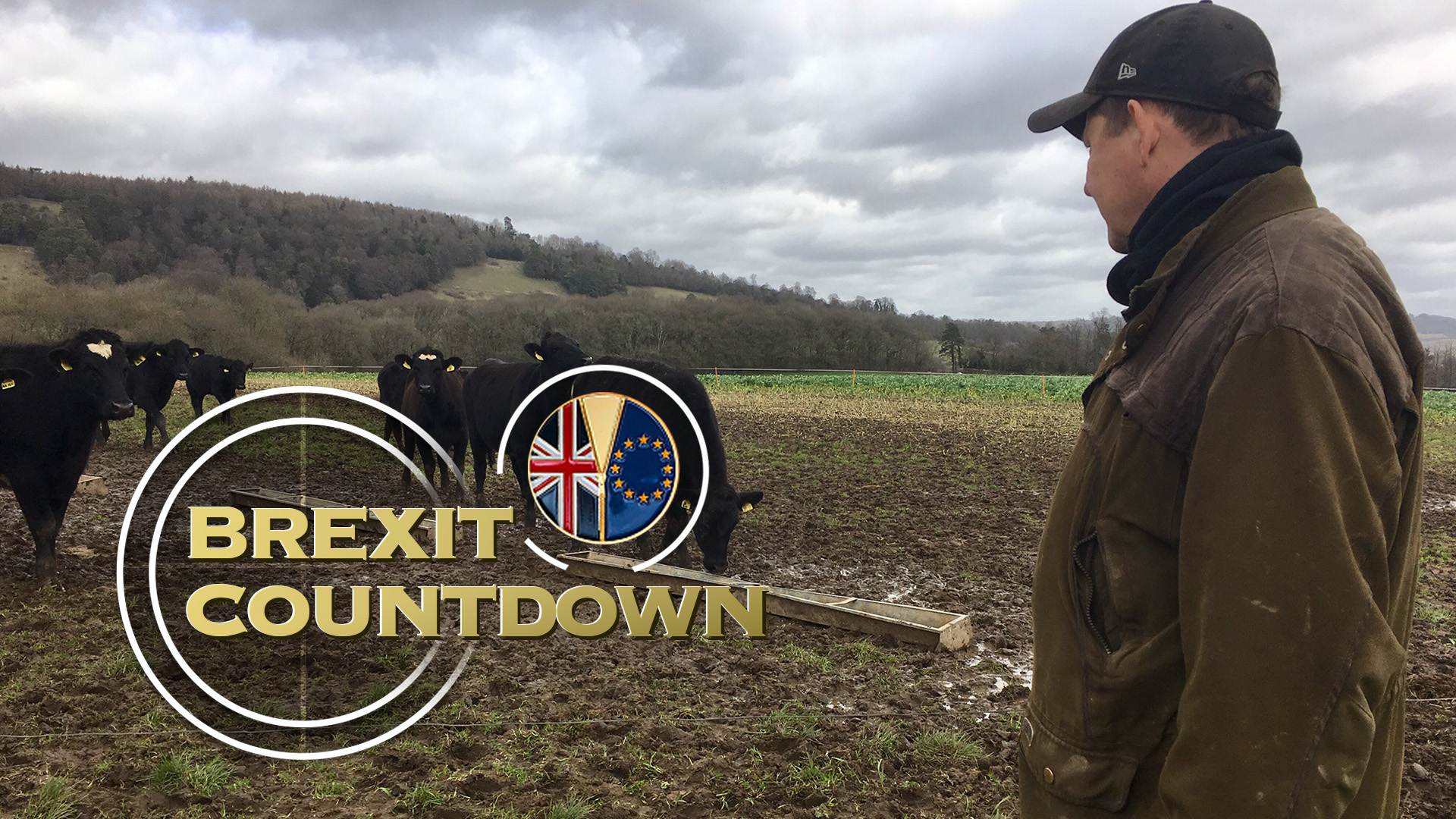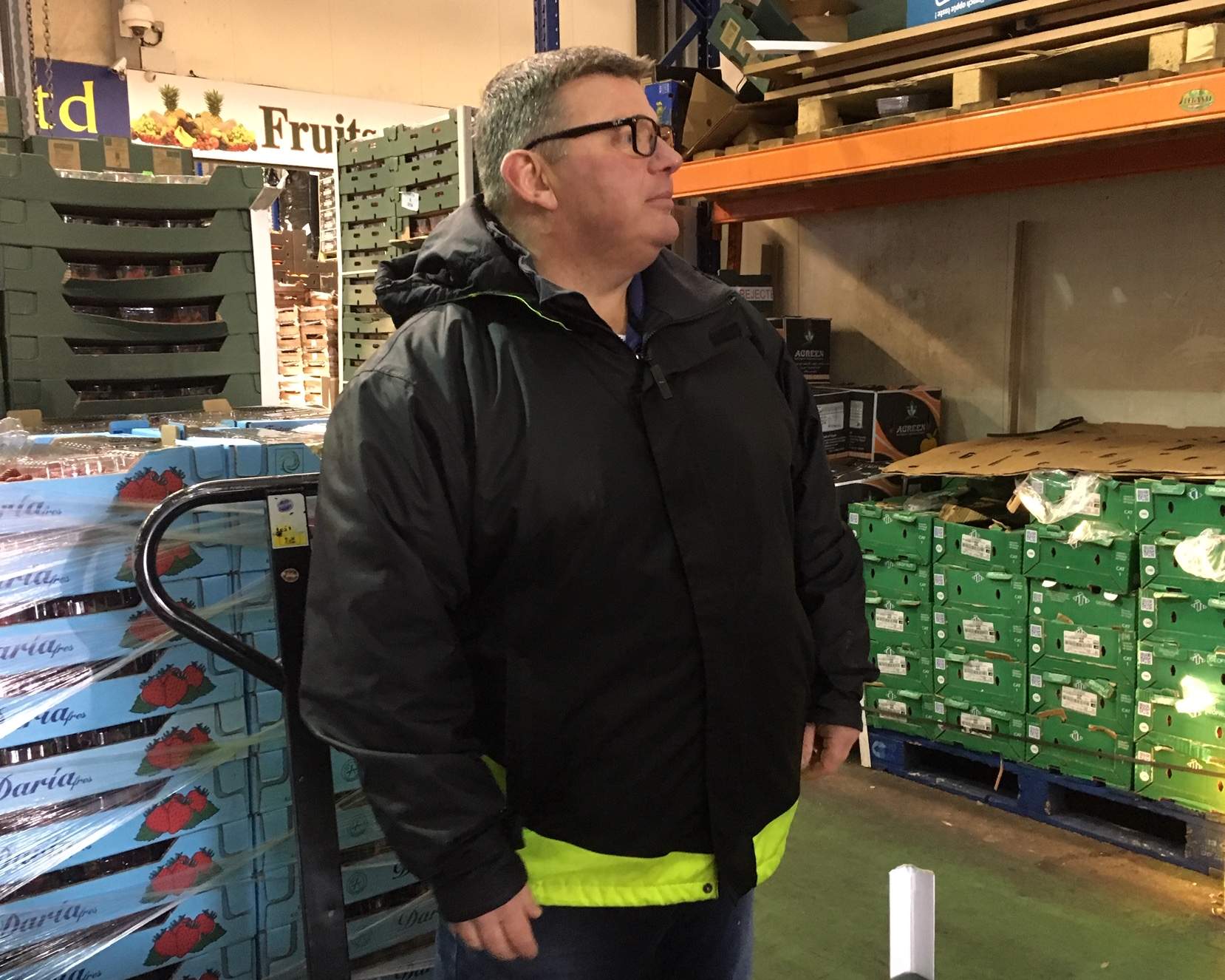
Economy
21:15, 28-Mar-2019
Fears over food price rises in UK after Brexit
Kitty Logan

Hugh Broomb's family has farmed the fields beneath the picturesque Surrey Hills for generations. He tends to his herd of black Aberdeen Angus cattle every morning, pouring feed into a trough and shifting a wire fence to extend the grazing area. It seems idyllic, but with political confusion over the final outcome of Britain's departure from the European Union (EU), farmers are frustrated.
"Whether you were for or against Brexit, the uncertainty that's over our farm business, or indeed any other business, is really unhelpful," says Hugh. "What we'd like to see is a quick a resolution as possible with the best deal possible."
Hugh represents the National Farmers Union in the Southeast of the country. He says sheep farmers are particularly worried.
"We export roughly half the sheep meat we produce in the UK and half of that half goes to France. They're our best land customer by a country mile, they love British lamb," he says. "If we crash out tomorrow with no deal, if we're outside the EU customs union, on lamb, for example, there would be a tariff of 48 percent. That would price us out of the market."

Farmer Hugh Broomb with his cattle. /CGTN Photo
Farmer Hugh Broomb with his cattle. /CGTN Photo
At a neighboring farm, Laurence Matthews produces grain crops on 3,000 acres of land. But his huge grain storage halls are almost empty, with only a few handfuls of wheat left.
"The pricing is up and down all the time," he says. "So, we've already sold all our grain from last year, because we weren't going to be left with holding it with no certainty of price."
Laurence is also frustrated by the uncertainty over Brexit. "Farming is a long-term business. I have rotations in my farm of wheat and grain crops and grass rotations as well. We have plan going forward years ahead. I can't plan if I don't know where my market is going to be."
The British Retail Consortium is warning that a no-deal Brexit will push food prices up for consumers too. 80 percent of tomatoes sold in the UK in March are grown in Spain, for example, but the costs of bringing them to British supermarket shelves could be influenced by transport delays, new tariffs, as well as a fluctuating currency exchange with the Euro.
"People talk about between 10 and 30 percent. I think it will be 10 to 15 percent, says Patrick Konings, a Dutch fruit dealer who regularly buys from UK traders. "But it will increase. Also, I think more smaller companies won't survive in England." He estimates additional paperwork once Britain leaves the current customs deal with the EU, could cause delays of up to twelve hours for trucks at key ports. That could also mean produce is no longer fresh when it arrives.
But Paul Smith from Western International Traders' Association is more optimistic. He sees Brexit as an opportunity to trade with other non-EU countries. He also thinks it will boost British growers.
"Local produce is great for everybody. It's economically sound and it's better for everyone. For local communities, everything. If there is a price increase on goods or a slow up on supply, then certainly that should promote some business in the UK."

Trader Paul Smith /CGTN Photo
Trader Paul Smith /CGTN Photo
Paul is one of many fruit and vegetable traders working through the night in this busy wholesale market, unloading produce from European countries and selling it on as day breaks. He is confident that whatever the final outcome of Brexit, it will be business as usual. The country will be trading on. But for many others, political instability is already changing how they do business.

SITEMAP
Copyright © 2018 CGTN. Beijing ICP prepared NO.16065310-3
Copyright © 2018 CGTN. Beijing ICP prepared NO.16065310-3